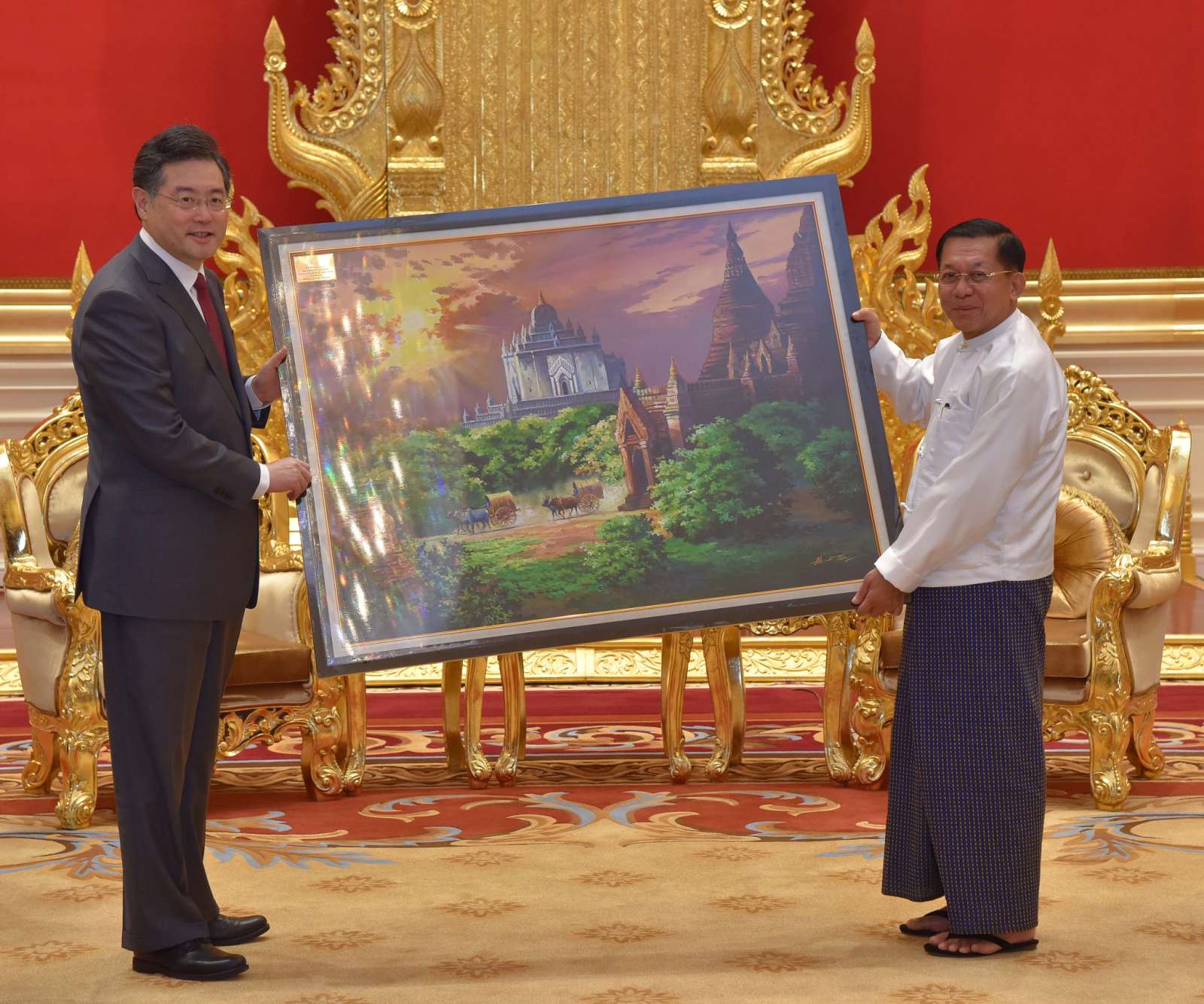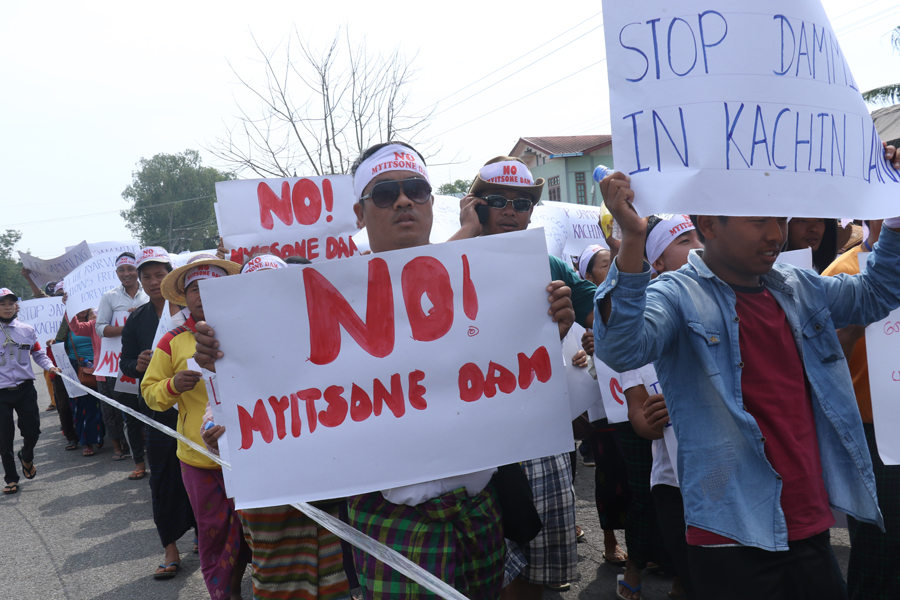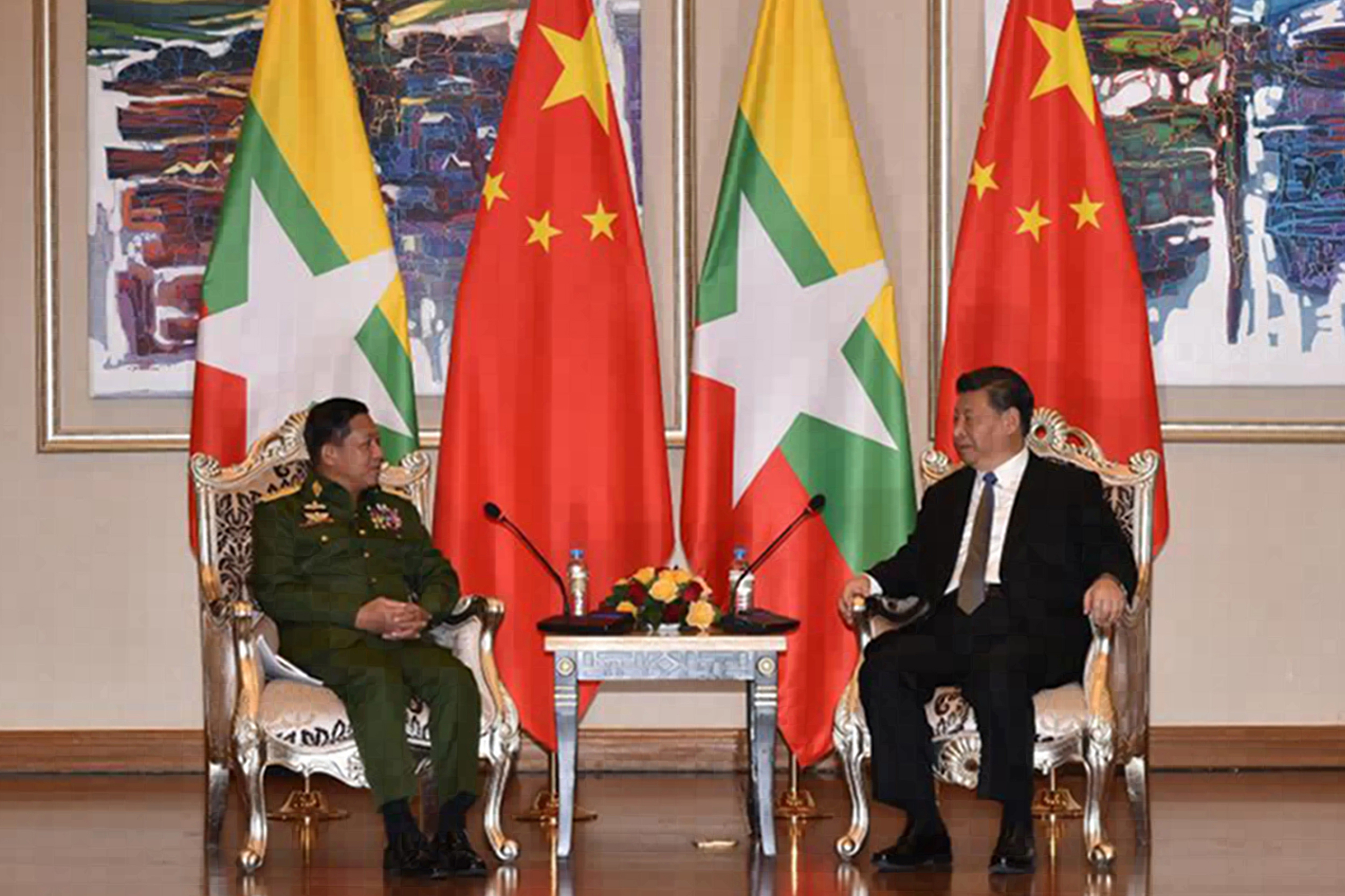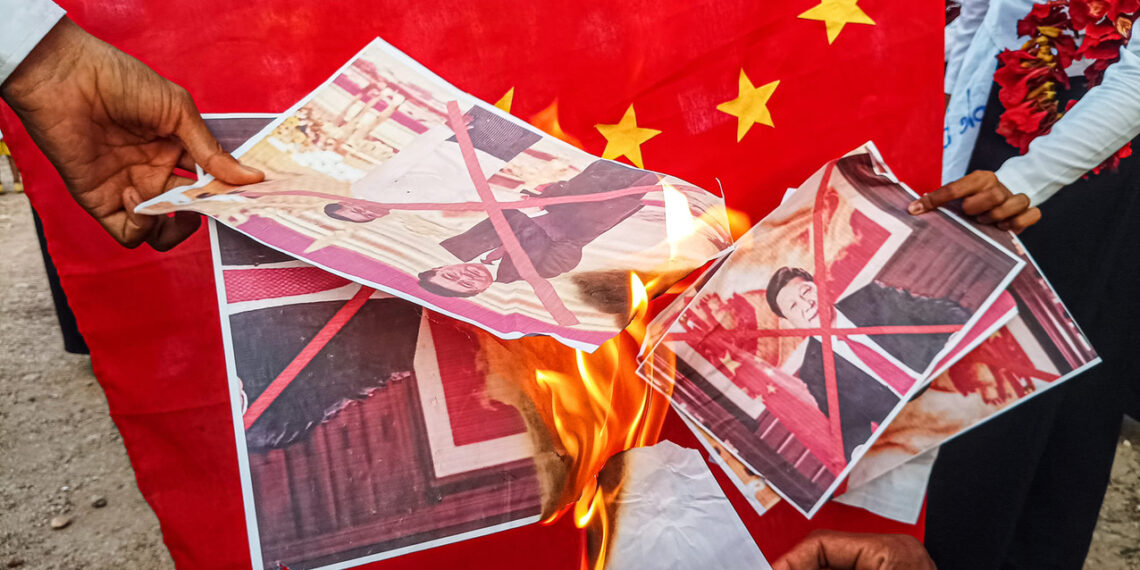Ties between China and the Myanmar junta are getting warmer, and diplomats and observers following the issue recently received a message that suggests the relations between Beijing and Naypyitaw could reach a new milestone soon with a visit to China by regime boss Min Aung Hlaing in September.
Every China-Myanmar relations watcher knows that—if the news is true—it would be really mind-blowing for the junta leader, who has mostly been ostracized by Western democracies for his 2021 coup, and has even been banned from ASEAN (Association of Southeast Asian Nations) capitals and excluded from their summits. Since then, Russia and China have turned out to be his allies, and Moscow has invited him for several official visits, but Beijing hasn’t. Following the coup, Min Aung Hlaing desperately tried to visit China to seek Beijing’s blessings for his regime. But his attempts were turned down by Chinese officials. What’s significant about the September trip—the message says—is he would be there at Beijing’s official invitation! But can China handle this hot potato?
The Irrawaddy has not been able to independently verify the message that emerged in June, one month after Chinese Foreign Minister Qin Gang’s visit to Naypyitaw. Qin is so far the most senior Chinese official to see Min Aung Hlaing in more than two years since the takeover.

Following Qin’s visit, regime spokesperson Major General Zaw Min Tun briefly visited China. Neither side made any announcement.
Early this month, Min Aung Hlaing disappeared from public for a few days after a July 2 meeting in Yangon with officials from the Union of Myanmar Federation of Chambers of Commerce and Industry and associates to discuss national economic promotion.
Asian intelligence sources and others in Naypyitaw said he flew to Guangzhou, southern China. The reason behind the visit was unknown.
Obviously, Min Aung Hlaing is desperate to visit China to be received by high-ranking officials, and there is evidence to suggest that he will do whatever it takes to get invited.
In May, Major General Yang Yang, acting director-general of the Intelligence Bureau of the Joint Staff Department of China’s Central Military Commission, met the junta’s No. 2 official, Soe Win, for talks on “cooperation between the two armies.”
During the meeting, Soe Win reportedly proposed a resumption of the controversial Myitsone Dam project in Kachin State. In September 2011, then President Thein Sein suspended work on the Chinese-funded Myitsone Dam in response to a mounting public outcry over the project, which critics say threatens the source of the Irrawaddy River. The Chinese were upset with the decision. The surprise suspension was also interpreted as a cue to Western governments, including the US, to ease sanctions.

In any case, if Soe Win raised this controversial proposal with visiting Chinese officials, analysts believe it indicates Min Aung Hlaing is desperate for further endorsement from Beijing, including an official visit. It will be a quid pro quo.
But will Beijing buy it?
For China, welcoming Min Aung Hlaing officially will be seen as an endorsement and the lending of full legitimacy to the brutal and totally condemned regime in Myanmar.
China should think twice before inviting Min Aung Hlaing.

Deep anti-China feeling
Following the February 2021 coup, the Chinese Embassy in Myanmar faced daily demonstrations in which thousands of protesters demanded that their neighbor stop supporting the military.
Despite widespread international condemnation of the coup, China called it merely a “major cabinet reshuffle” and said the takeover was an internal affair, provoking huge protests.
At the time there were calls for a boycott of Chinese products and threats to China-backed projects and pipelines. There were also attacks on Chinese-owned factories in Yangon. Then there were attacks on China’s pipelines in Mandalay Region.
At the time, Chen Hai, Chinese ambassador to Myanmar, came out to say that the current situation in the country was “absolutely not what China wants to see,” adding that China hoped all parties in Myanmar “could handle the current problem through dialogue and consultation properly and lead the country back on track as soon as possible.”
Despite such anti-China sentiment among Myanmar people, Beijing hasn’t been totally alienated from the regime over the past two-and-a-half years.
In 2023, China stepped up its most high-profile engagement with the Myanmar regime since the 2021 coup by sending Qin. Prior to his visit, there came the Chinese special envoy, Peng Xiubin, who is the director of the International Liaison Department of the Communist Party of China, as well as visits by senior officials of Yunnan Province.
However, there have been no regime ministers separately invited by their Chinese counterparts to Beijing for direct engagements since the coup. Engagement between the two militaries has also been at a low level since the takeover, even though China is a major ally and arms supplier to Myanmar.
Once Min Aung Hlaing sets foot in Beijing on an official visit, it will only fuel anti-Chinese feeling in Myanmar. There will be consequences. Myanmar opposition forces may attack Chinese projects in Myanmar and protests will likely take place in and outside of the country.

Last time, after Foreign Minister Qin’s visit, anti-China protests broke out across Myanmar. Activists, student union members and general strike committees across the country launched an online campaign, sharing the message, “Hey China: stop killing Myanmar’s people by supporting fascist criminals,” in Chinese and English.

















